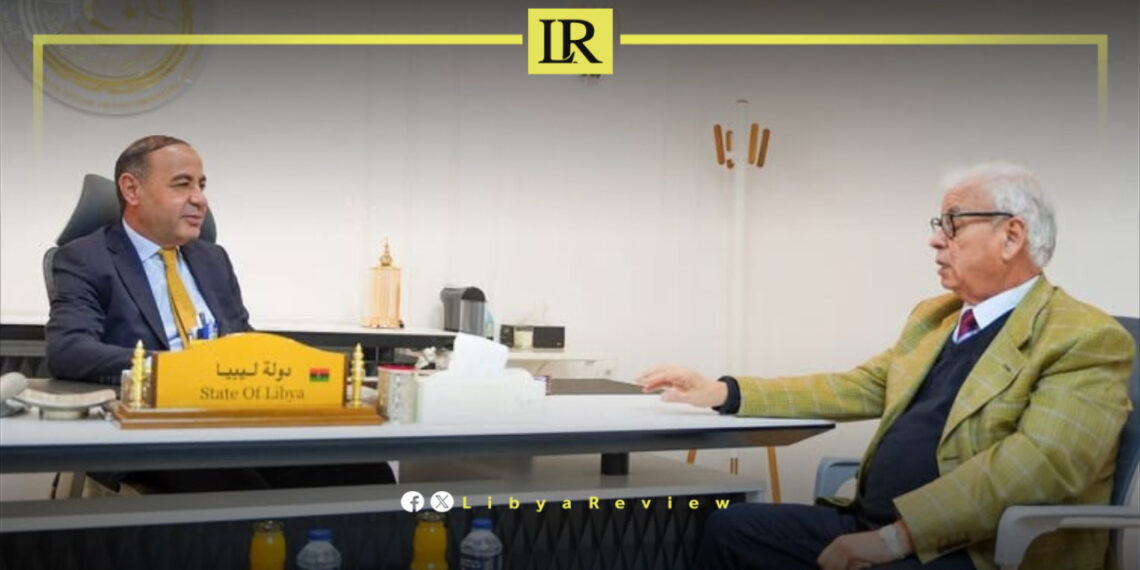Al-Taher Al-Baour, the acting head of Libya’s Ministry of Foreign Affairs in the Government of National Unity, met with Libya’s representative to the International Criminal Court (ICC) and the International Court of Justice (ICJ) in The Hague, Ahmed Al-Jehani.
The meeting focused on the latest developments in Libya’s cases at the ICC, emphasizing enhanced coordination to support national interests and ensure justice. Discussions also addressed the Palestinian cause and the pivotal role of international institutions in supporting the rights of the Palestinian people.
Both officials stressed the importance of continued cooperation and coordination to safeguard Libya’s national rights and back international efforts for achieving justice.
Libya has been in chaos since a NATO-backed uprising toppled longtime leader Muammar Gaddafi in 2011. The county has for years been split between rival administrations.
Libya’s economy, heavily reliant on oil, has suffered due to the ongoing conflict. The instability has led to fluctuations in oil production and prices, impacting the global oil market and Libya’s economy.
The conflict has led to a significant humanitarian crisis in Libya, with thousands of people killed, and many more displaced. Migrants and refugees using Libya as a transit point to Europe have also faced dire conditions.
The planned elections for December 2021 were delayed due to disagreements over election laws and the eligibility of certain candidates. This delay has raised concerns about the feasibility of a peaceful political transition.
Despite the ceasefire, security remains a significant concern with sporadic fighting and the presence of mercenaries and foreign fighters. The unification of the military and the removal of foreign forces are crucial challenges.


